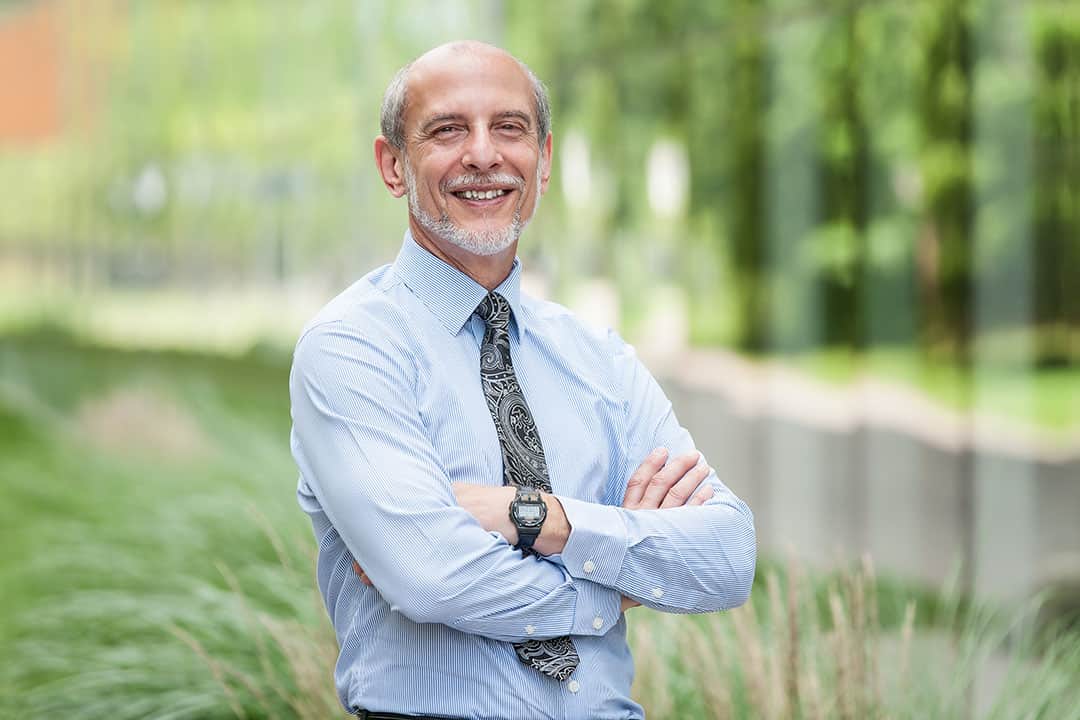Professor Ulrich Krull has been appointed as the new Vice-President and Principal (VP-Principal) of UTM, effective July 1, 2017, for a three-year term.
U of T President Meric Gertler had created an advisory committee that established both the mandate and the desired qualities for the new VP-Principal, after which a call for nominations and a position profile was put forward.
Formerly serving in the role of Interim Vice-President and Principal, Krull, a chemistry professor, has assumed numerous administrative positions at UTM, including Vice-Principal Special Initiatives and Associate Dean of Sciences. The Varsity sat down with Krull to discuss his appointment and plans in his new position.
The Varsity: How did you react to getting appointed? Were you confident that you would get this position after the work you had done this year and in the past? Or was it still a surprise?
Ulrich Krull: So there’s little bit of history to this one. The message that I had given publicly over and over again last fall was [that] I was not interested in taking this position on permanently. I have had a year to actually experience the position and in a sense, it has unfolded as I had hoped: the community has really rallied around, there’s a very good sense of morale, a sense of a can-do spirit here.
TV: As a celebrated teacher and distinguished scientist, did you find any qualities of these professions to be helpful in an administrative capacity when you were interim-Vice President and Principal? Will any of these help in this role as well?
UK: I think the answer is yes. One can answer this in a number of different ways. There are those that become so heavily embedded or vetted to research with that singular focus that it’s sometimes difficult to see how the administrative role can easily, in a sense, build from that. But my life, my career, has been shared between administration and serving as a professor, so I have found a happy balance. In my particular area, as a faculty member in the sciences, we are responsible for finding the money we are going to use for the research team. I have, and I’ll call it an advantage perhaps [as] I don’t know how to better explain it, had many years of experience also working with industry and with government from the standpoint of funding, running research projects, running contracts, dealing with intellectual property.
TV: As a VP-Principal, what are your main roles and duties?
UK: My role, in a sense, is… to create strategy for this particular campus and then to integrate that strategy, building on the strengths we have from the academic platform of teaching and research and working with the outside community, to actually implement that.
TV: So, are there any particular first courses of action you are looking at with this new position?
UK: I think the answer is probably best said that, as I was in an interim position, we are going to keep that work going. When I took the interim position, I had spoken with the president of the university and indicated that I would take this role if it were understood that it was not simply trying to manage the portfolio until a new person was selected, that I would have some license in terms of driving forward initiatives. The initiatives I had in mind were to support the visioning exercise which would lead to the strategic plan, implementation of a direction for this particular campus that now extends from the history of the campus. Remember, we’re in the 50th year. It’s time to reflect on where we are and where we are going… Those are the directions we are going in, continuing with the visioning exercise, and we will now develop an academic strategy. The material is posted online for everybody to take shots at and try to tune it.
TV: Lastly, do you have any new plans, hopes and dreams for the position? What are the long-term goals you are looking at?
UK: I will put to you some important goals that are perhaps less quantitative than, say, building a building. What I am looking for is a change in culture at a couple of different levels. One, how we participate in research overall, within the University, making it possible for individuals that are appointed at UTM to actually find value on this campus to do research here. So, we are prepared to put in resources to build out clusters that do not exist elsewhere in the university and provide an interesting home and unique distinctive flavor to this particular campus… I’m also very interested to see what we can do to improve the student experience… I think we have some real value there that we can offer students and we need to explore that value in several different ways. One way is for more students to get involved with research but, in a sense, what we are talking about would be called ‘experiential education’ – the whole concept of providing more and improved avenues here at UTM, particularly [for] undergrads, to have experiences beyond the classroom that will help them develop leadership skills, confidence, and skill sets to be able to move out as individuals in their own right, leaders in their own right.
This interview has been edited for length and clarity.


